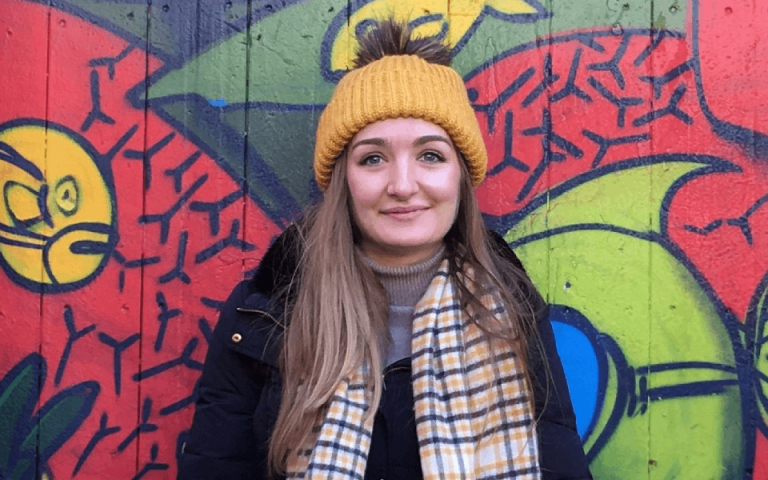Dr Nikoleta Kalaydzhieva
Dr Nikoleta Kalaydzhieva is a Lecturer (Teaching) in Pure Mathematics at the Department of Mathematics.

3 July 2023
When did you take up this position? What was your position beforehand?
I have always been at UCL - I joined during my undergraduate degree, stayed for my PhD, and started my role in January 2021. It was the result of a perfect storm: the end of my PhD and the need for more teaching staff in the Department of Mathematics, due to the high number of undergraduate students during the pandemic.
Tell us about your work at UCL - how do you spend your days, and what makes your role different to similar positions elsewhere?
My job is incredibly varied, which is something that I love and appreciate. No two days/weeks are the same. As a teaching member of staff, I spend most of my term time preparing and teaching undergraduate and master’s level courses. I also supervise master’s students in their final year project.
The other part of my term time is spent on my pastoral support roles. I am currently the Year 1 tutor and coordinator as well as one of the founding members of the PhD mentoring scheme. The PhD mentoring programme is a Mathematics department initiative that assigns to each PhD student an academic (not in the student’s research area) who is there to provide pastoral support. In addition, the lead mentors organise and run workshops on a variety of topics, like managing a successful PhD, conferences and networking, what you can do with a pure maths PhD and similar.
Over the summer I organise other extracurricular events like the group research projects for our first-year undergraduates, supervised by the current PhD students in the department, as well as the widening participation initiative In2Science and the Logic and Proof summer school.
I also deliver outreach talks for The Royal Institution, Women in Maths days and conferences, and I am a lecturer for the PROMYS Europe Mathematics programme.
What are some of your favourite things about working at UCL?
I loved studying and now working at UCL mostly because of the departmental culture. It is a very welcoming, friendly and collaborative place to work.
Can you tell us about any upcoming research, or current/future projects that you're looking forward to working on?
My big current project/dream is to create a network and a mentoring scheme for Access students in the Department of Mathematics. We recruit more and more every year (thanks to some wonderful Access initiatives) so it would be very nice to create a safe and welcoming space for the students whilst at UCL.
Together with a colleague of mine, we have managed to secure a Student Success Fund to run a set of workshops and networking sessions between the current first-years and higher year undergraduate students and we plan to involve some first-generation PhD students to increase visibility. This is all still very much work in progress, but I am hoping it becomes part of our undergraduate programme.
Have you always been based in London? If not, when did you move here, and how did you find adapting to living in London?
I am originally from Bulgaria, but ever since I visited London for the first time in 2006, it has been my dream to live in the city. In 2009 I moved to do my A-levels and never looked back.
The adaptation to life in London was quite slow. Coming from a foreign country, I not only had to communicate in a different language, but also had to learn a lot about the culture. It was an exciting journey and I felt particularly welcomed at UCL. The Mathematics department is wonderfully diverse.
Finally, tell us about your non-work life. Do you have any hobbies, or favourite places to go in London?
Living in London offers so many things to do! I started Latin dancing during my PhD and have been trying to go back to it since the end of the pandemic.
I also love walking around London's streets and parks. I enjoy watching pretty much any sort of live show - from theatre and comedy clubs, and especially small music gigs like Sofar.
 Close
Close

